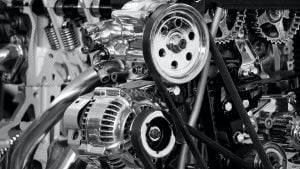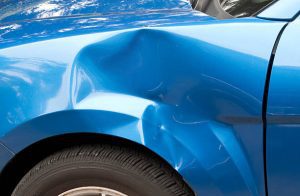Safe Driving Tips for Prolonging Car Life


Safe Driving Tips for Prolonging Car Life


Introduction
As a car owner, you want your vehicle to last as long as possible. Proper maintenance and regular servicing are undoubtedly essential for prolonging the life of your car. However, safe driving habits play a significant role in ensuring the longevity and durability of your vehicle as well. In this article, we will discuss a range of safe driving tips that can help extend the life of your car, prevent unnecessary wear and tear, and keep you safe on the road.
1. Adhere to Speed Limits
Driving within the designated speed limits is not only a legal requirement but also crucial for the well-being of your vehicle. High speeds put excessive stress on your car’s engine, transmission, brakes, and suspension. Over time, this can lead to accelerated wear and tear and potentially costly repairs. Additionally, speeding reduces your reaction time and increases the risk of accidents. By adhering to speed limits, you protect your car and ensure the safety of yourself and others on the road.
2. Accelerate and Brake Smoothly
Avoid aggressive acceleration and sudden braking whenever possible. Rapid acceleration can strain your car’s engine and drivetrain components, leading to increased fuel consumption and potential damage. On the other hand, abrupt braking can put stress on the brakes, tires, and suspension, causing unnecessary wear. Instead, accelerate gradually and brake smoothly to minimize strain on your vehicle and promote a longer lifespan.
3. Avoid Revving the Engine on Cold Starts
When you start your car on a cold morning, it’s crucial to avoid excessive revving of the engine. Cold starts cause increased friction and wear in the engine until it reaches its optimal operating temperature. Revving the engine only exacerbates this friction, potentially leading to damage to the internal components. Allow your car to idle for a minute or two before driving off, giving the engine time to warm up gradually and lubricate properly.
4. Steer Clear of Potholes and Rough Roads
Potholes and rough roads can wreak havoc on your car’s suspension system, tires, and alignment. Whenever possible, try to avoid driving over potholes or rough patches of road. If you encounter unavoidable potholes, slow down to minimize the impact and avoid sharp turns or sudden braking while passing over them. Prolonged exposure to rough roads can cause premature wear of suspension components, leading to compromised handling and increased repair costs.
5. Observe Proper Tire Maintenance
Your car’s tires are critical for safety, performance, and longevity. Follow these tire maintenance tips to ensure a prolonged lifespan:
5.1 Check Tire Pressure Regularly
Maintaining the correct tire pressure is crucial. Underinflated tires can lead to increased rolling resistance, reduced fuel efficiency, and uneven tire wear. Overinflated tires, on the other hand, compromise traction and cause uneven wear in the center of the tire. Refer to your car’s manual or the sticker on the driver’s side door jamb for the recommended tire pressure. Check your tire pressure at least once a month and adjust as necessary.
5.2 Rotate and Balance Tires
Regular tire rotation and balancing help ensure even wear across all tires, extending their lifespan. Rotating the tires allows them to wear more uniformly and prevents excessive wear on specific sets. Balancing the tires helps distribute the weight evenly, reducing vibrations and strain on the suspension system.
5.3 Maintain Proper Tread Depth
Monitor your tire tread depth regularly. Worn-out tires with insufficient tread depth compromise traction and increase the risk of hydroplaning, especially on wet surfaces. Consider using the penny test to check the tread depth. Insert a penny into the tire’s tread groove with Lincoln’s head facing down. If you can see the top of Lincoln’s head, it’s time to replace the tires.
5.4 Ensure Wheel Alignment
Proper wheel alignment is crucial for even tire wear, optimal handling, and prolonging the life of your tires. Misaligned wheels can cause uneven tire wear and affect the vehicle’s stability. Have your wheel alignment checked regularly and aligned as necessary to maintain the correct position of your wheels.
6. Follow Maintenance Schedule
Adhering to your car’s recommended maintenance schedule is vital for preserving its longevity. Regular maintenance tasks such as oil changes, filter replacements, fluid top-ups, and inspections allow potential issues to be detected and resolved early, preventing further damage. Additionally, routine maintenance helps to keep your car running smoothly, improve fuel efficiency, and reduce the risk of breakdowns.
7. Avoid Overloading
Overloading your vehicle puts unnecessary strain on the suspension, brakes, tires, and other components. Check your car’s maximum load capacity in the owner’s manual and ensure that you do not exceed it. Distribute the weight evenly and avoid loading heavy items on the roof whenever possible. Overloading your car can lead to reduced fuel efficiency, compromised handling, and increased wear on various parts.
Conclusion
Safe driving habits not only keep you and others safe on the road but also contribute to the longevity and durability of your vehicle. By adhering to speed limits, accelerating and braking smoothly, avoiding excessive revving on cold starts, steering clear of potholes, observing proper tire maintenance, following the maintenance schedule, and avoiding overloading, you can extend the life of your car and reduce the risk of costly repairs. Remember, a well-maintained and properly driven vehicle not only benefits your wallet but also ensures a safer and more enjoyable driving experience.








